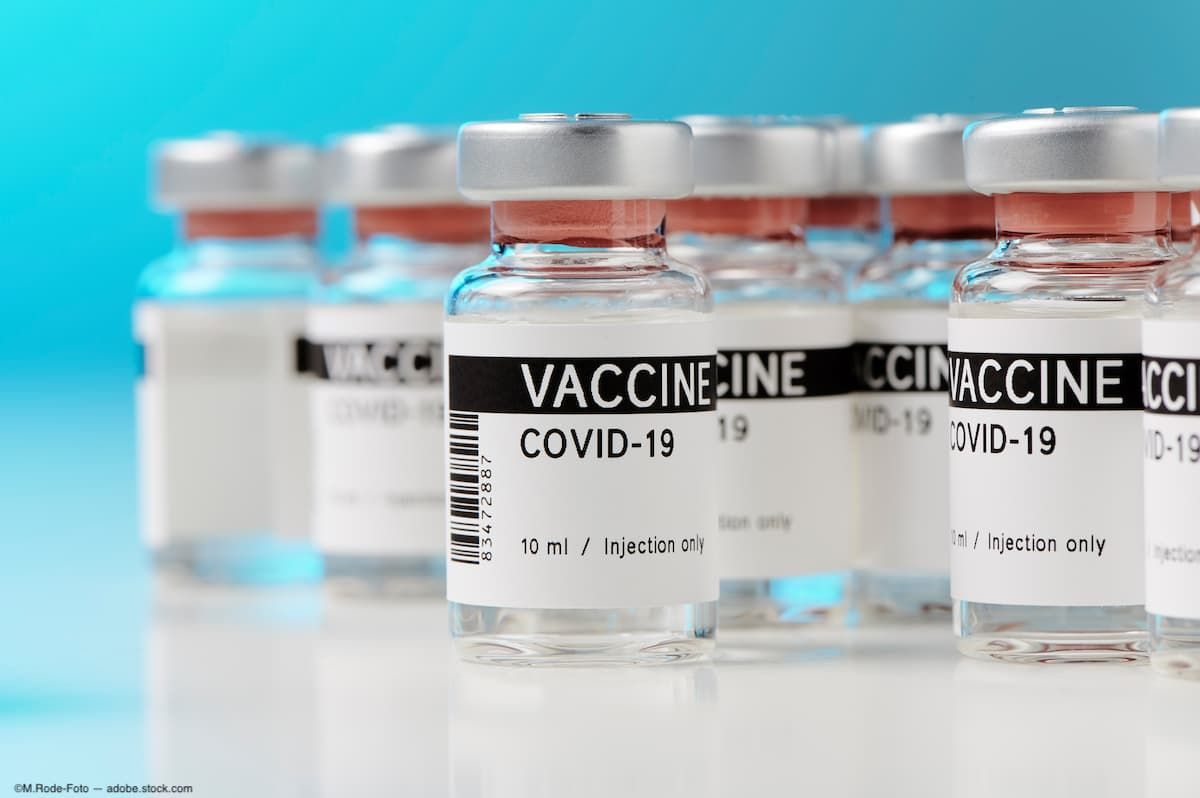Very low incidence of ocular inflammatory events reported after COVID-19 vaccinations in the UK
A recent study found that despite worldwide reports of ocular inflammatory events being reported after patients received COVID-19 vaccinations, a low amount has been reported in the UK.
(Image credit: AdobeStock/M.Rode-Foto)

A recent study from the UK found that despite worldwide reports of ocular inflammatory events reported after patients received COVID-19 vaccinations, there was a very low incidence of such cases in the UK,1 according to first study authors Ilaria Testi, MD, and Taha Soomro, MD, both from Moorfields Eye Hospital, National Health Service Foundation Trust, London.
The rationale for this study was the report from the UK Medicines and Healthcare products Regulatory Agency (MHRA) about suspected adverse drug reactions to vaccines against the COVID-19 virus and that ocular inflammatory events following receipt of the vaccinations have been reported worldwide.
The investigators analyzed the data from the MHRA that reported suspected ocular inflammatory events that developed after patients received COVID-19 vaccination. The time course of the study was from January 2021 to September 2022.
Analysis of ocular inflammatory events
The MHRA reported that it had received 300 “spontaneous suspected reports of ocular inflammatory events” in the UK after patients were treated with the COVID-19 vaccination. This was a calculated prevalence of 6.6 events per 1 million vaccinated individuals.
The most common manifestation of ocular inflammation among the 300 reports was anterior uveitis in 58.3% of the cases. Optic neuritis was the second most common adverse event in 39.3% of cases. These inflammatory episodes developed a median of 8 days between the vaccination and onset. The inflammation resolved in 52.3% of the cases.
The authors concluded, “Ocular inflammatory events following COVID-19 vaccination have a very rare prevalence in the UK. There is no increase in the reporting rate of uveitis, optic neuritis and scleritis following COVID-19 vaccination when compared with the range of incidence in the UK population. The Yellow Card System represents a vital instrument within the domain of pharmacovigilance, empowering patients and healthcare professionals to contribute to the ongoing monitoring of medication safety.”
Reference:
Testi I, Soomro T, Pavesio C, Solebo AL. Ocular inflammatory events following COVID-19 vaccination: reporting of suspected adverse drug reactions to regulatory authorities in the UK. Br J Ophthalmol. 2024; https://doi.org/10.1136/bjo-2023-324503
Newsletter
Keep your retina practice on the forefront—subscribe for expert analysis and emerging trends in retinal disease management.